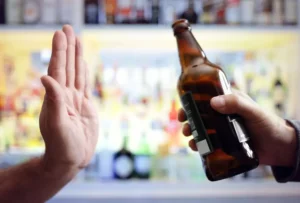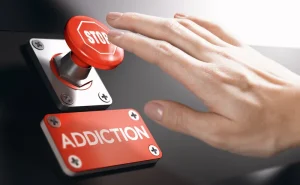
The acetaldehyde produced is not enough if you experience reddening and flushing in the neck or face area. Your liver breaks down the alcohol and turns it into the highly toxic and reactive chemical acetaldehyde. Ninety percent of the time, the alcohol goes through the liver, and only around 10% of it gets out through sweat and urine. By Buddy TBuddy T is a writer and founding how to flush alcohol out of your system member of the Online Al-Anon Outreach Committee with decades of experience writing about alcoholism. Because he is a member of a support group that stresses the importance of anonymity at the public level, he does not use his photograph or his real name on this website. If you are trying to sober up quickly, you may be tempted to drink a lot of fluids at once.

Alcohol Detection Times
Alcohol withdrawal has a set of complex symptoms when someone abruptly stops or reduces their consumption. The process will help your system withdraw from the alcohol you have been addicted to. You’ll experience various symptoms and side effects but will eventually feel better – like a brand new person – once the process is completed. You’ve finally decided that you’re too old to drink or have realized that your body can no longer handle alcohol. Maybe you’re facing DUI charges and need to abide by the court ruling.
What are the risks of rapid detox methods?
Still, alcohol can be detected in the system using different types of drug testing. All of these services can help you reduce alcohol cravings and build a healthy, sober life. Fooling a drug test can be hard if you don’t know what you’re doing, but it’s possible with enough preparation. By trying a few tricks and techniques, you may be able to pass your drug test. There’s a bit of truth to the phrase, “sleep it off.” Sleep allows your body to rest and recover.
- Eating a meal before drinking can influence the absorption of alcohol.
- Drinking sufficient water helps dilute the alcohol concentration in the urine, leading to faster elimination.
- To avoid these symptoms, seek help at an alcohol detoxification program.
- Finally, you can take diuretics, which will help to flush the alcohol out of your system.
Detection Time Frame
A higher dose (5 drinks or more) can cause uncontrolled urination, alcohol poisoning, and breathing problems. Your liver is responsible for breaking down the majority of alcohol in your body. As a matter of fact, 90% of the metabolism of alcohol into water and carbon dioxide is performed by the liver. The remaining 10% is removed through the lungs (breathing), kidneys (urine), and skin (sweating). As a matter of fact, there are two toxins in alcohol the body has to work hard to eliminate. The form found in most alcoholic beverages is known as ethyl alcohol, which is produced during the fermentation process.


It is also important to drink plenty of fluids before and after consuming alcohol, as this can help reduce the risk of a false positive. Water is vital for many biological processes and is essential for maintaining human health. One of the functions of water in the body is to help flush out toxins, including alcohol.
Alcohol Detection Timeline

When the body is adequately hydrated, the kidneys can filter toxins efficiently, including alcohol. Drinking sufficient water helps dilute the alcohol concentration in the urine, leading to faster elimination. On the other hand, dehydration can slow down the excretion process, increasing the likelihood of alcohol remaining in the body for a more extended period. The human body metabolizes alcohol primarily in the liver using an enzyme called alcohol dehydrogenase (ADH). ADH breaks down alcohol into acetaldehyde, a toxic substance, and further metabolizes it into acetic acid, which can be easily eliminated.

How Fast Does the Liver Metabolize Alcohol?
- How these enzymes function and other factors, such as genetics, will determine if someone is at risk of developing alcoholism or is alcohol intolerant.
- They don’t only test whether you have or haven’t used alcohol — they may also indicate how much recent drinking has taken place.
- Dehydration can cause various health issues like electrolyte imbalances, dizziness, and even fainting.
- Zinc deficiency can hinder the effectiveness of hepatic enzymes that break down alcohol, which intensifies and prolongs the effects of alcohol intoxication.
- Still, it should be noted that there is no one, perfect solution to this concern.
- On the other hand, if you are trying to reduce the amount of alcohol in your system, then you can flush it out less often.
SMART Recovery vs. A.A. – Is One Better?
- Most of the alcohol that is consumed is eliminated from the body through the urine.
- Because alcohol metabolites stay in the body long after alcohol is eliminated, tests that find metabolites will have a more extended detection period.
- Rapid detox methods, such as using detox drinks or supplement pills, can put strain on your organs, especially the liver and kidneys.
- Surrounding yourself with supportive friends and family who understand your goal to avoid alcohol can significantly impact your success.
- Your symptoms may be similar, such as anxiety, headaches, nausea, and sleep disturbance.
